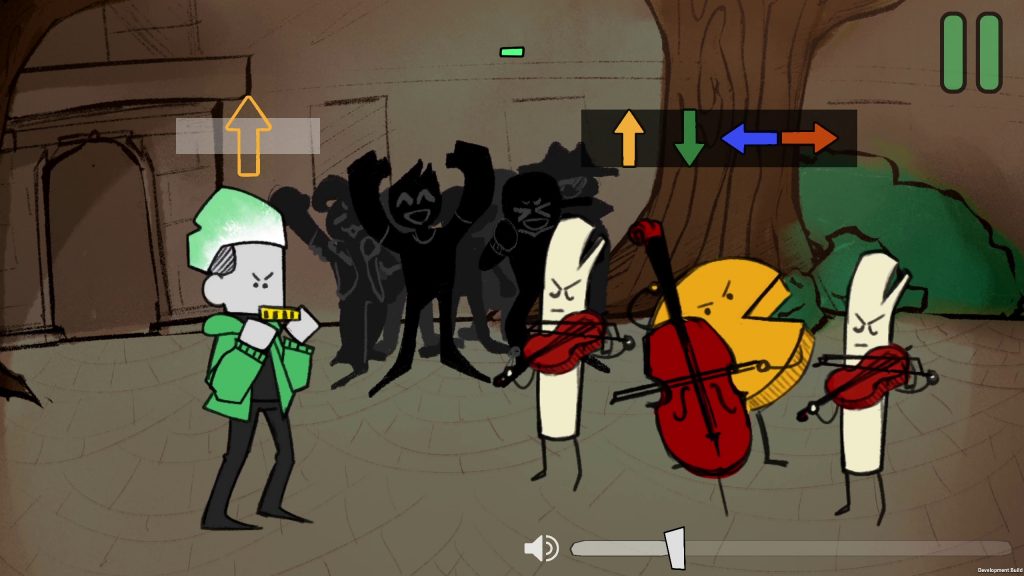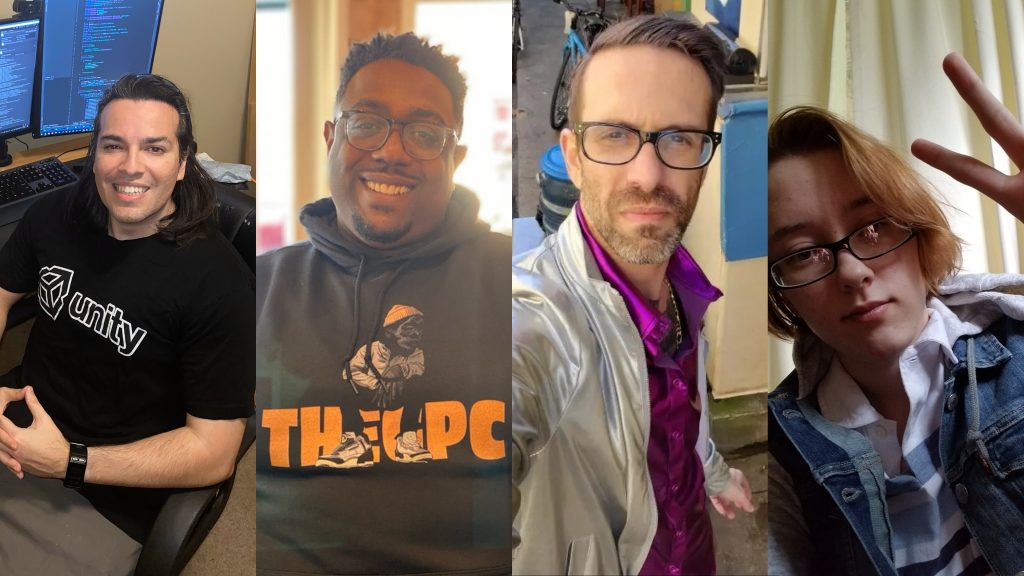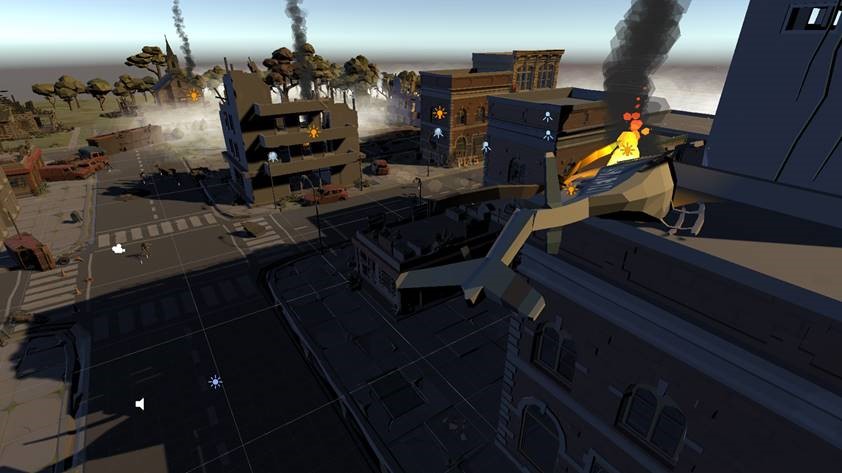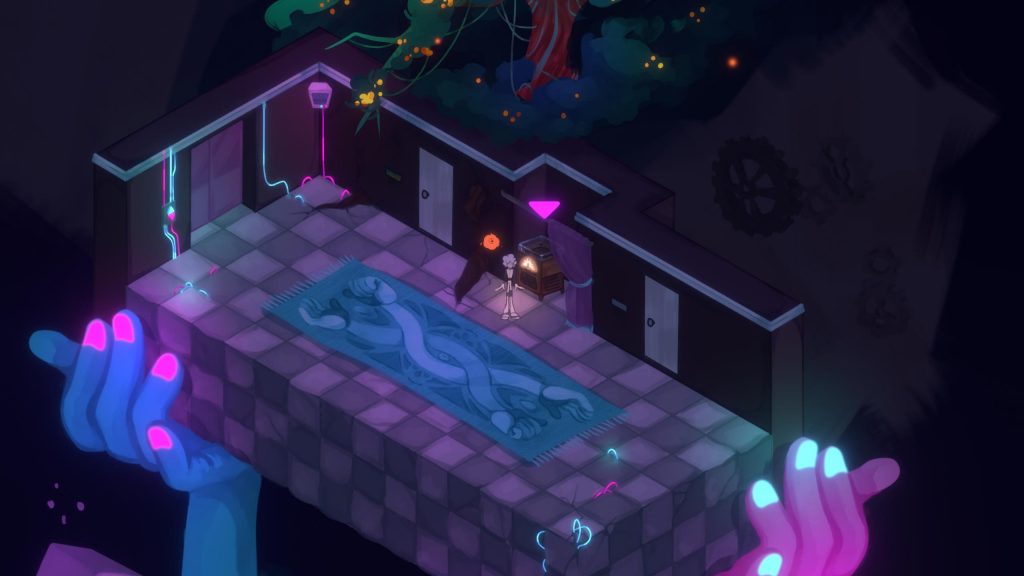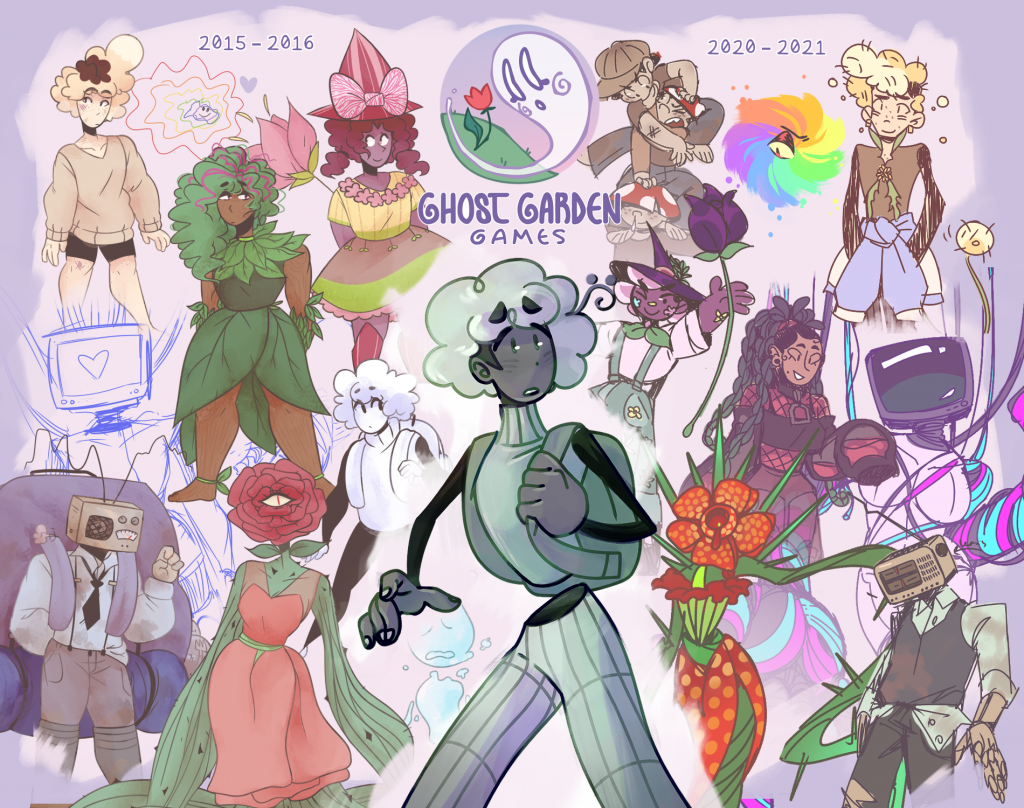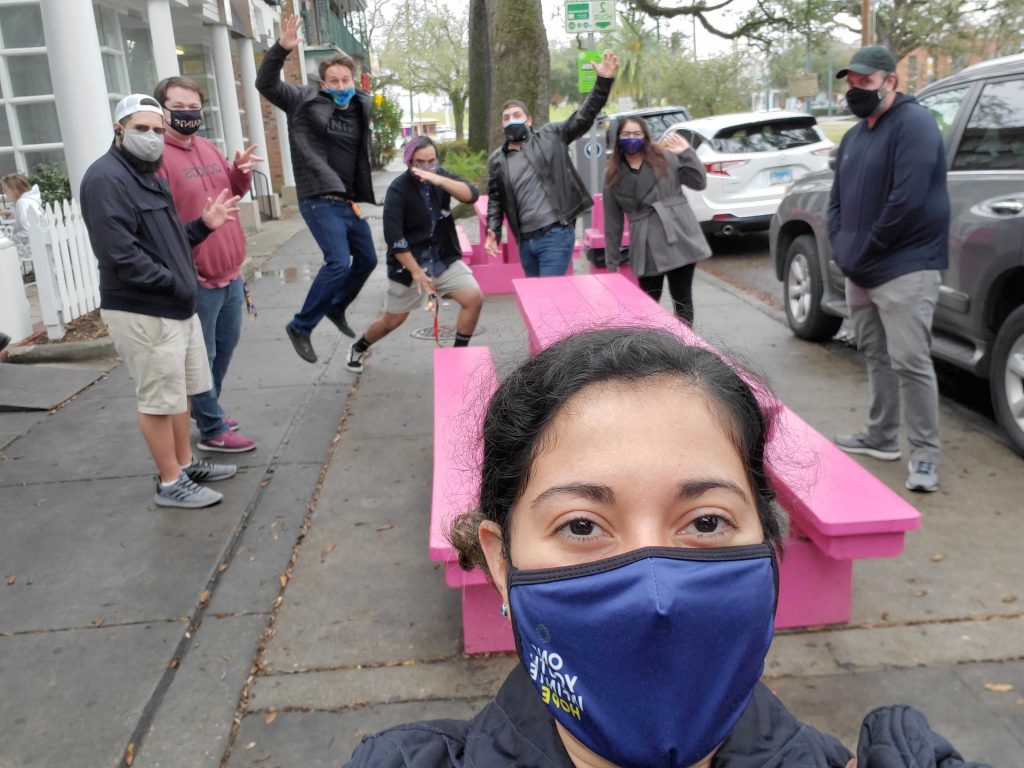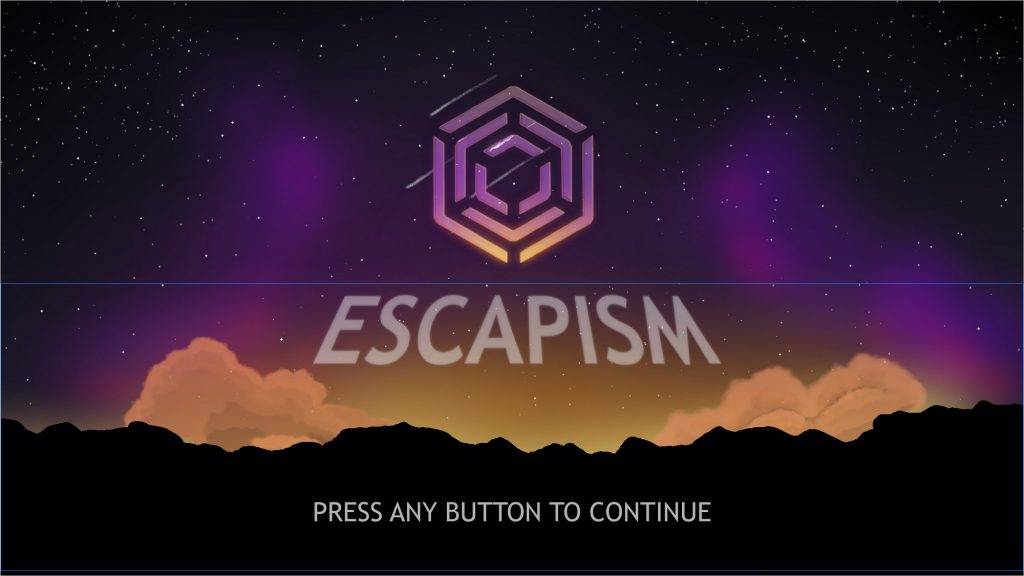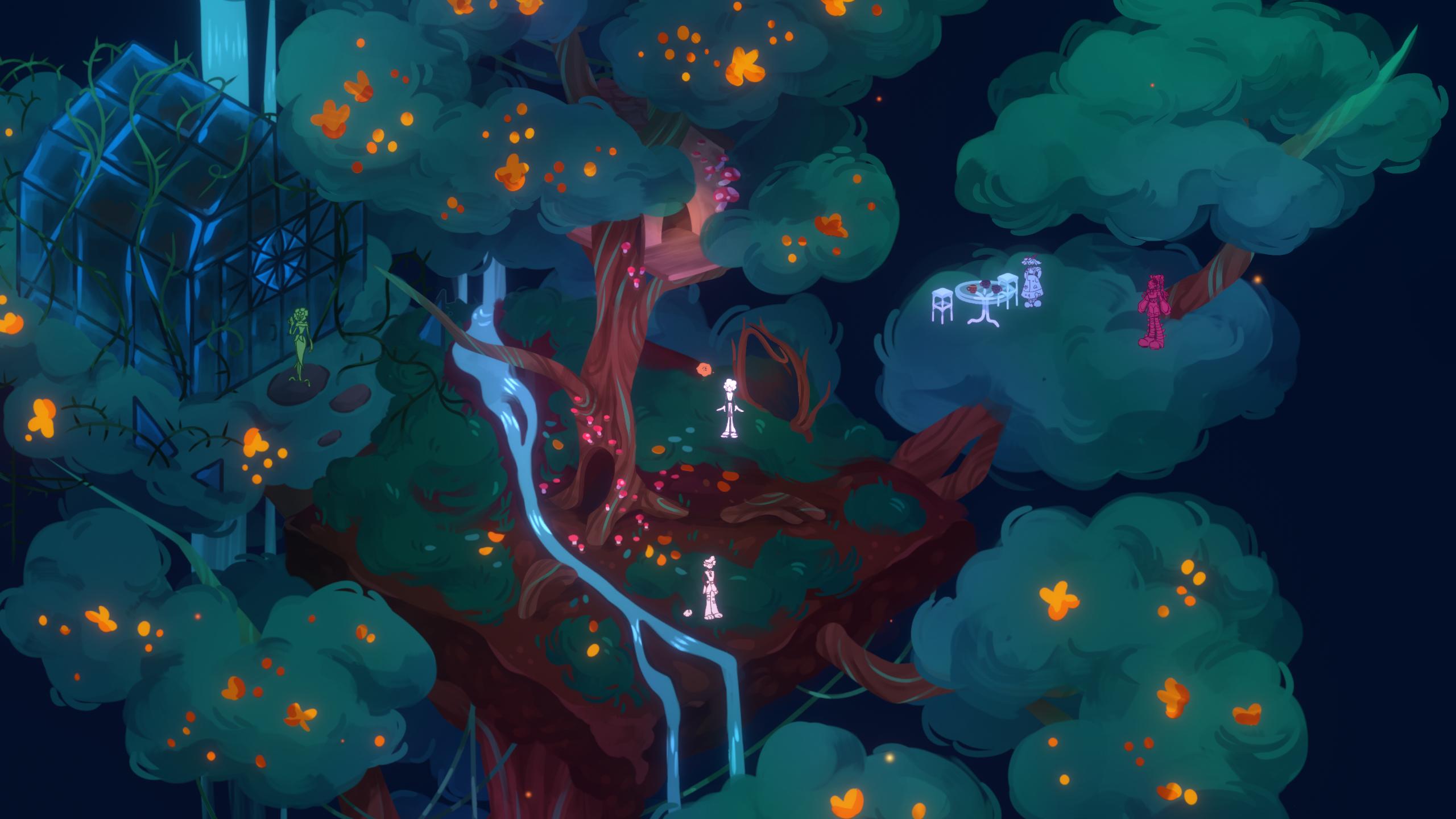
New Orleans Game Camp creates opportunities for a more diverse pipeline into the gaming industry
For the past six months that they’ve been developing their first-ever video game, the Big Super Happy Fun Fun team knew pretty much from the get-go that their hometown of New Orleans needed to play a major part in it.
This vibrant city – synonymous with multicultural food, music and architecture – shows up in the team’s hand-drawn rhythm game, Colin’s Crunchy Beets, through signature dishes, original music from a local band and in landmarks as the main character battles his way to victory.
The game is still under development, but its progress in becoming a reality at all is a testament to Xbox Game Studios Game Camp New Orleans – Powered by Unity, an experience that ran from Sept. 28 to March 25 that engaged 170 people over the age of 18 throughout Louisiana and organized them into 17 teams (the program paired about a third of the people together from different disciplines). Some teams pre-existed or were created prior to applying.
For Jon Broder, a New Orleans-based playwright and producer who’s played video games, but never knew how to build them, it’s been a revelation to work as the narrative designer for Colin’s Crunchy Beets.
“Thousands of people in the South do not ever get the opportunity to do this kind of thing,” says Broder, who lives in the French Quarter, where the ubiquitous presence of buskers influenced the feel of the game. “By placing it here, it opened a floodgate of opportunities for people. I also want to say that the visibility of equity and diversity in the presenters and the people involved in the program in the meetings is really great to see in the South.”
“Game Camp’s foundation is based on the belief that extraordinary talent resides everywhere,” says Peter Zetterberg, a senior director for Xbox Game Studios. He started the first game camp in his native Sweden several years ago, which would serve as a prototype for the New Orleans iteration. As in the previous camp, this one sought to inject structure, resources and connections to the gaming industry in places where that infrastructure wasn’t as developed as in major gaming epicenters. “If we provide the tools, the access and encouragement to people from any walks of life, they will shine and become empowered to change the trajectory of their lives.”
Working with Team Xbox’s head of human resources, Sharman Mailloux Sosa, it was also important to Zetterberg that this camp draw from a diverse pool of folks often under-represented in the industry: women and people from various racial, socio-economic and ethnic backgrounds.
“We had several initiatives at the time that intended to bring more people of color, specifically Black folks, into the gaming industry,” says Melissa Boone, a senior Xbox research manager who formerly led a group at Microsoft called Blacks at Xbox and is a spokesperson for the camp. “Peter approached me after hearing me speak about this and asked, what can we do to increase diversity in the industry?”
After Zetterberg told her about the Swedish Game Camp, Boone realized that was an idea they could easily import to the U.S. New Orleans bubbled to the top of the list of potential locales due to its distinct culture, an abundance of historically Black colleges and universities (HBCU) and the recent addition of an office for inXile – a company that falls under Xbox Game Studios – to the Big Easy. And when schools and studios in the area started circulating information about this camp, the Xbox team realized they had tapped into a burgeoning game development scene eager for opportunities to connect and grow.
This was a scene that Chris Douglas, born and raised in New Orleans, knew well.
A graduate of a Xavier, an HBC, and a former esports competitive player, he was Microsoft’s lead program manager for this camp.
“I’ve always done a lot of local work with gaming, giving kids of color a place where they can have solace and then also see someone else that looks like them,” says Douglas. “I’m trying to help the community locally here get into gaming and even more specifically help their parents understand why it’s important. It’s not just people playing games all day. It’s a $200 billion industry.”
Although he had played basketball at the prestigious all-boys school he attended, he knew early on he wanted to do something else with his life.
“Everyone was pushing you towards like sports or towards medicine and away from like gaming,” he says. “So I would tell them ever since I was 12 years old, I wanted to work for Microsoft and I wanted to be in gaming specifically.”
Game Camp was supposed to commence in the spring of 2020, but it underwent a hiatus and a pivot when it became clear that the pandemic would shut down in-person meetings. It emerged in the fall of 2020 as remote-only, using Microsoft Teams to connect campers to each other, as well as to help them participate in weekly panels, discussions and mentoring with game industry veterans as they built and presented a game over about six months, concluding at the end of March. They learned about the nuts and bolts of development, as well as the business side of the industry: analytics, marketing and user research.
In February, the teams presented pitches of their games in progress to a trio of judges: Shannon Loftis (studio head of World’s Edge Studio Microsoft), Chris Charla (senior director of content & curation at Microsoft) and Ken Lobb (creative director at Xbox Game Studios). The trio came in with decades of experience in the gaming industry. It resembled reality show competitions, but with helpful and constructive feedback.
“We weren’t going to let COVID stop us from being helpful to others, when this was needed more than ever before,” says Zetterberg. “Of all companies in the world, we can do this.”
Unity, Adobe and Autodesk contributed to the camp by giving away free licenses of their software development kits and middleware. LinkedIn also chipped in, donating six months of free Premium subscriptions to all campers.
Ultimately, beyond the pandemic – which affected some campers directly – the teams also had to contend with several hurricanes and power outages. Participating teams also shifted over time, with some people unable to stay until the end. But they, like New Orleans, remained resolute in their journey toward bringing their games to life.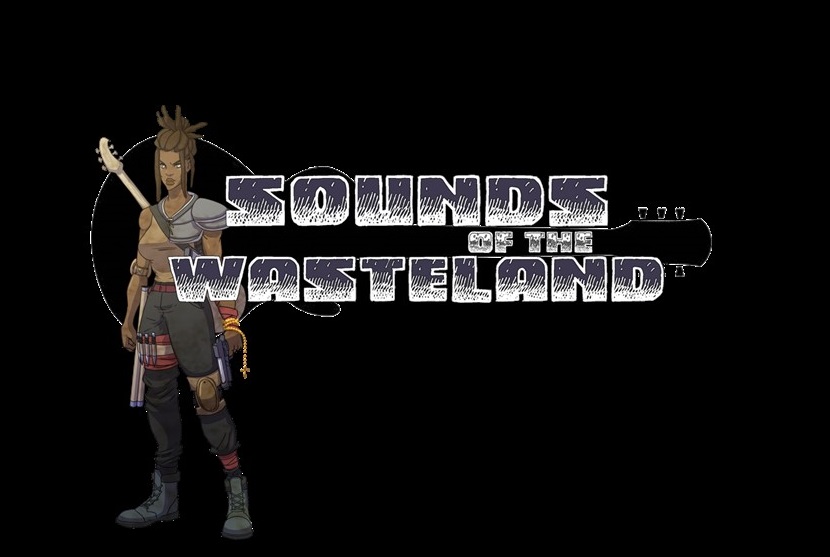 In the Boy Howdy team’s game, Sounds of the Wasteland, Kali is a heroine who is one of the last humans on Earth trying to survive among a post-apocalyptic world filled with angels, demons and washed up musicians.
In the Boy Howdy team’s game, Sounds of the Wasteland, Kali is a heroine who is one of the last humans on Earth trying to survive among a post-apocalyptic world filled with angels, demons and washed up musicians.
The genesis of the idea is a journey familiar to Lou Hill, a touring musician with New Orleans-based band Water Seed, who has driven from there to Los Angeles and back several times.
“Our hero is discovering herself and trying to figure out why she’s in this situation,” says Hill. “She’s uncovering all of these things and trying not to lose herself in in that space.”
Hill enjoys anime, graphic novels and playing video games, and his area of technical expertise is in music recording, music engineering, sound design for film and gaming, film scoring and composition.
His teammate, Jonathan Lai, has a background in product design and is in grad school at LSU studying digital media. An avid PC gamer since middle school, Lai grew up playing games given to him by uncles who worked at Microsoft.
He also did a cross-country trip a year ago to get to Baton Rouge – from Seattle – a drive he’s done a few times.
“Our team loved the duality of driving for long mundane hours across a desertscape, also being the crucial task that lets the show go on. Kali’s fight for survival – in an apocalypse dominated by clashing musicians – is simultaneously whimsical and epic,” Lai says.
In real life, the camp validated what Hill has known all along about the struggle to recognize the breadth of creativity and skills throughout Louisiana.
“The camp successfully shows this talent was taken right here from this region and was able to come up with some amazing things. Hopefully it will encourage more people to seek talent in this area,” Hill says.
While the Big Super Happy Fun Fun and Boy Howdy teams were strangers to each other before Game Camp, other campers knew each other before and entered as a team.
The founding members of Ghost Garden met at an all-girls high school and evolved into a homegrown games studio through game jams and other events, even though they are scattered across different colleges and cities. In college, they’re studying software engineering/computer science, digital art, information systems and business science. One of them, a former teacher from their high school, is pursuing a master’s degree in computer science.
They found out about the camp through an event LSU hosted for students to connect with people who work in the local game industry.
Their game, Echo, was a labor of love born at their high school, back in 2015.
“Leslyanne, our sound designer, wondered, ‘What if you had a video game and you played as a sound wave?’ We thought it was a crazy idea but it could work. We started asking, what hurts a soundwave, how does sound work? And Asher, can you draw it for us?” says Kathryn Nastasi, producer and technical artist.
Echo is the main character, a soundwave traveling through an apartment building in lockdown – a complete coincidence given how much of the world went into that same state last year. Over the years, Ghost Garden kept world-building an elaborate environment, and they’ve created other games, but it took Game Camp to really focus their energies on Echo.
“That was what brought us together as a group,” says Nastasi. “We wanted to make that into a game and then Game Camp has enabled that for us.”
“If you told me in high school that we would be doing this and we would actually have a chance to make this a real thing I would lose my mind,” says Asher Lejeune, lead artist and animator.
“I felt like I got to learn and grow with my community in Louisiana. It was incredible. I’m very grateful they decided to come down here,” says Nastasi.
They see Game Camp as a springboard to build something bigger.
“We wanted to learn as much as we could, meet and talk to as many people as we could and hopefully make something real out of it,” says Nastasi. “We all want to pursue this as our careers and are extremely passionate about telling these stories.”
The F in Chat team also knew each other before Game Camp, as the core members of the group worked for DXC Technology, a company that specializes in extended reality applications. Like most of the others in the program, they worked full-time jobs while also collaborating on their game and attending online sessions.
Their game, Escapism, evolved from the premise of an escape room into a first-person supernatural horror adventure. The main character is a prisoner who has to hide, fight and solve puzzles to get out.
“You don’t know where you are, you don’t know what you’re doing, but you’re just trying to get out, which does reflect this past year a lot,” says Sabrina Cuevas, creative director for the team. “It wasn’t intentional, but everyone’s had such a unique experience with 2020.”
Their 12-person team – spread out over Baton Rouge, New Orleans and San Diego – had challenges throughout the six-months of Game Camp: hurricanes that led to power outages, COVID-related illnesses, juggling family obligations/child care with working full-time. And they sorely missed being able to collaborate in person. But the benefits outweighed any setbacks.
“For me personally, Game Camp has given me this space to be able to try building a game and allow myself to be as creative and have as many ideas and try to organize them all into a real product into something essentially viable that we can actually build,” says Cuevas. “And I’ve been helping on basically every portion of the game that I can, which has been incredible. I don’t know where else they could have gotten this kind of experience to just be so involved in the game building process from the beginning to now.”
And for Merilly Ruglas, a designer and project manager for the team who grew up playing Final Fantasy 8, the experience presented a hopeful future.
“I grew up in a very poor family. I never really imagined that I could ever be working towards creating a video game,” she says. “So just having this experience is life changing for me. I’m really learning that I am capable of actually doing this. It’s hard, it’s time consuming, but it’s possible.”
Lead image: Screenshot from Echo showing the in-game hub (Ghost Garden Games)


